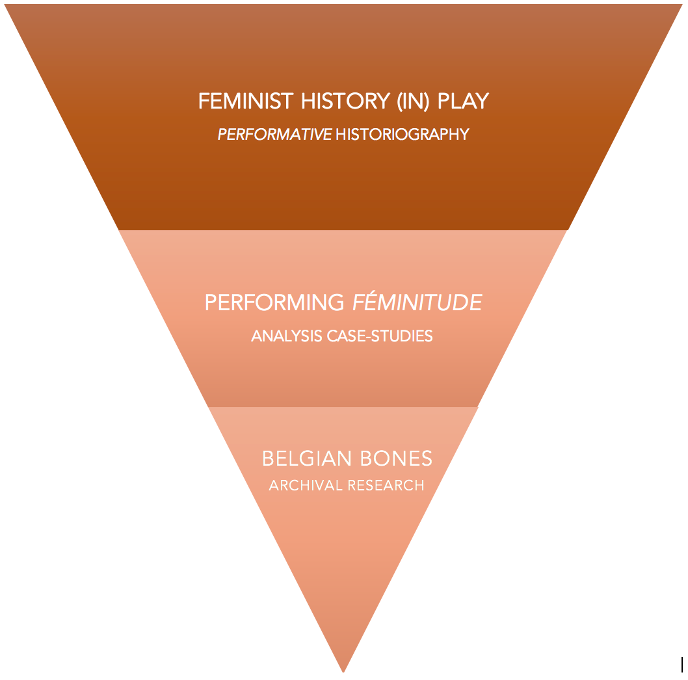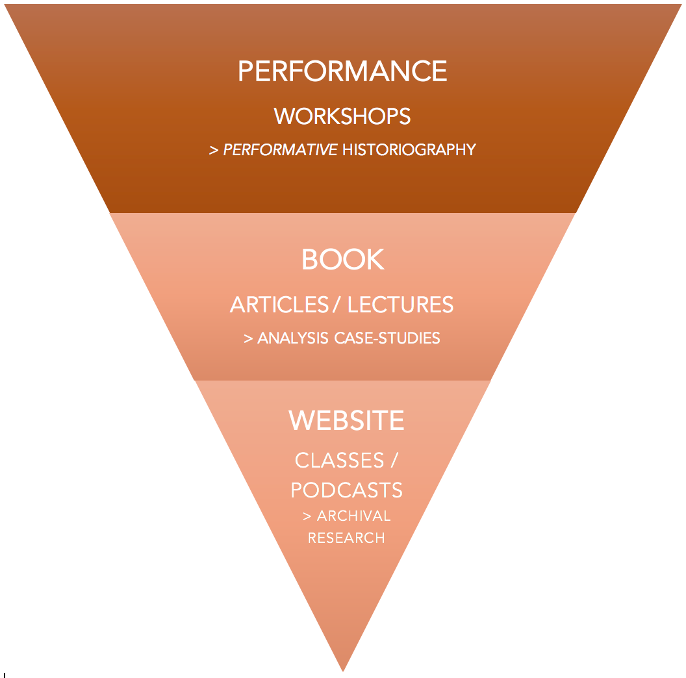This research project offers the first in-depth study of the pioneering role of female Belgian artists in theatre during the period of modernism: from Belgium’s independence (1830) until an important feminist victory shortly after WW II (1948).
The study analyzes these staging and performance practices as a ‘play with féminitude’, a concept within second wave feminism that characterizes a woman's gender identity (De Beauvoir 1949). Rather than being a purely theoretical endeavor, this project proposes theatrical strategies to perform feminist historiography. It sheds light on the staging practices of female artists, on the basis of a carefully selected corpus of Belgian womxn playwrights, actors, dancers, performers, directors and choreographers.
The objectives are threefold: (a) to collect and disclose historical information on the role of female artists in early Belgian theatre history, (b) to understand the sociopolitical relationship between the Belgian performing arts and feminism during the period 1830-1948, and (c) to develop performative strategies to re(dis)cover and (re)imagine women’s history.
The output consists of (a) a website including a database of material of and on Belgian womxn theatre artists, (b) a corresponding book with an analysis of the corpus on the basis of the concept ‘féminitude’, and (c) a ‘feminist history play’ based on the developed strategies of performative historiography and the archival material, next to (d) additional lessons, workshops and publications.






